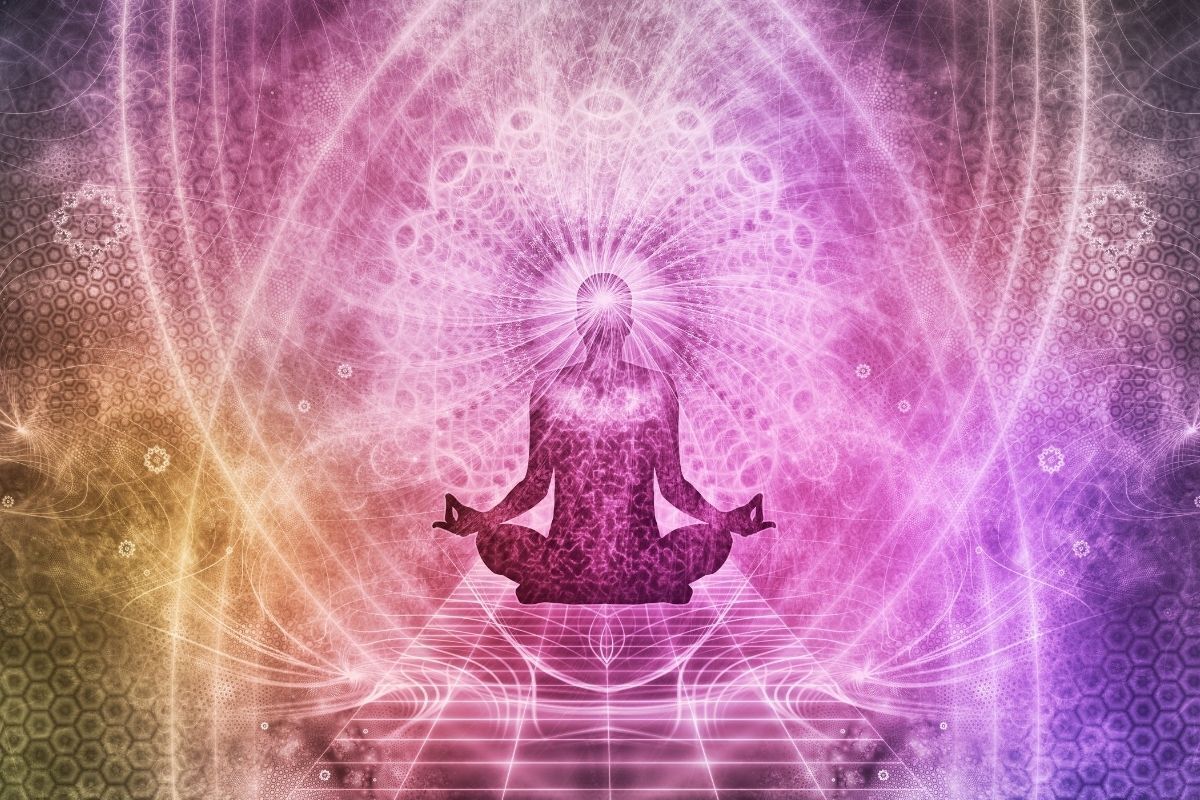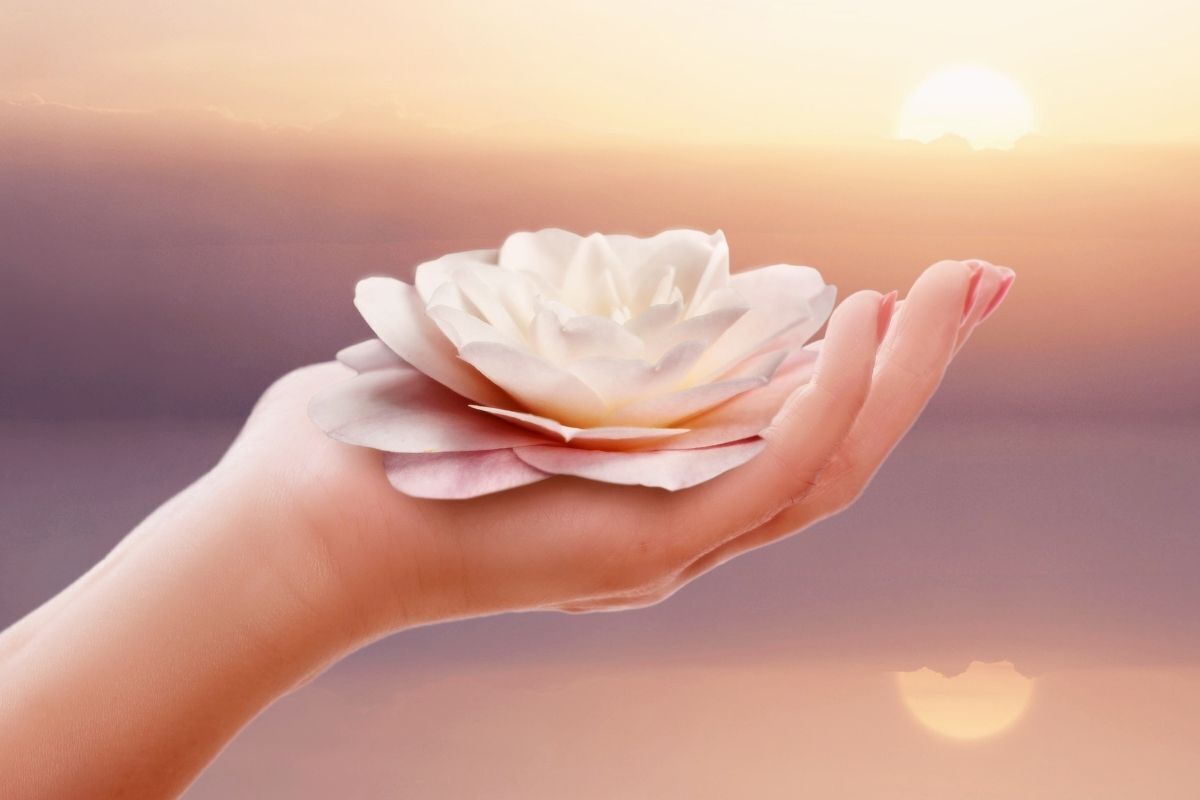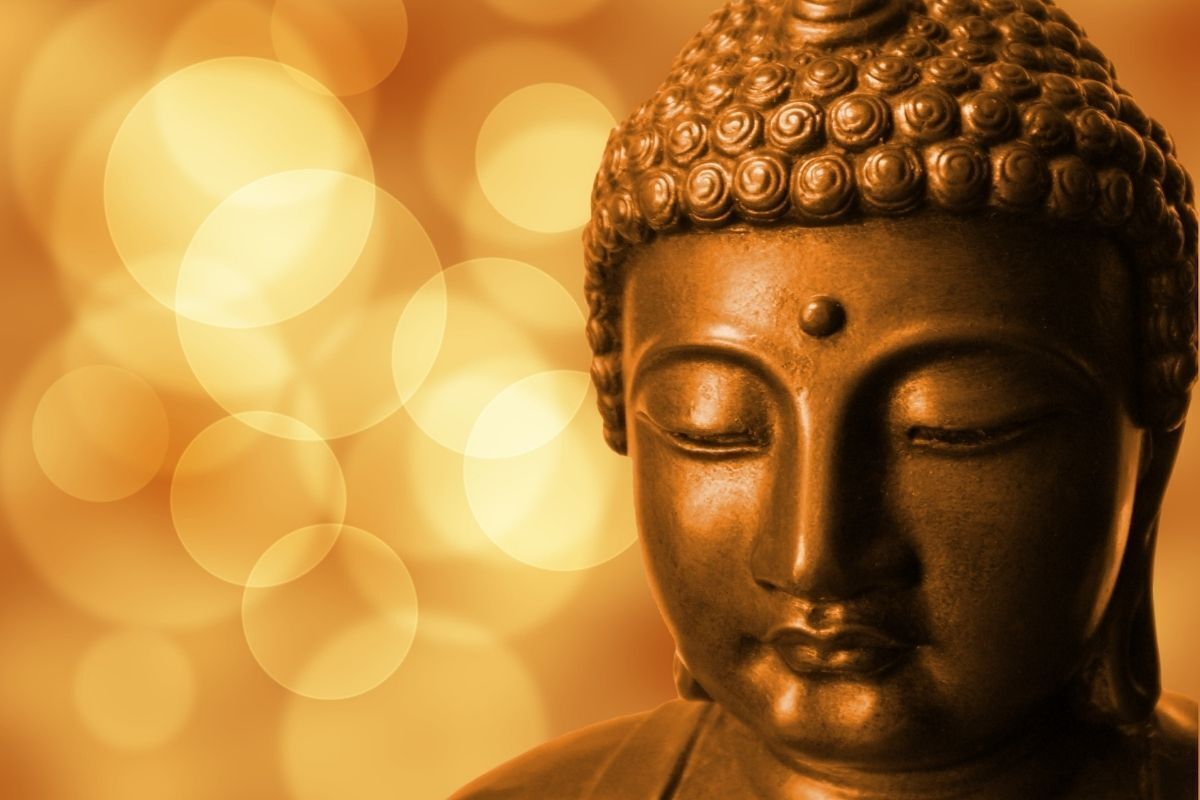Table of contents
General Meaning of Metta Bhavana, the meditation of unconditional love

Understanding unconditional love meditation starts from the fact that you need to understand the terms that are involved in this art. "Bhavana" is a term equivalent to "cultivation" or even "development" and "Metta" means "love", or "unconditional love".
This means that in this meditation practice, the individual actively cultivates positive emotional states in relation to other people and themselves. Metta Bhavana is a practice that helps bring more harmony to the individual's relationships, making him/her live a life with less conflict and also knowing how to solve the adversities that arise on the way. Want to know more about this meditation?Check it out in this article!
Metta Bhavana and the ways to develop unconditional love

Metta Bhavana is a way to make people's relationships with other individuals healthier and less conflictual. This meditation helps human beings to feel more empathy for others, and to learn to love themselves more. Learn more about it in the following topics!
What is Metta Bhavana
Throughout human history, there have been several types of meditations that aim to help the human being reach a state of peace and tranquility. The Metta Bhavana meditation is one such technique that helps the human being to grow, as well as to practice acts of kindness and offer forgiveness.
In addition, the Metta Bhavana is known as the meditation of universal peace, because it believes that life can bring many valuable things to human beings. It is one of the oldest Buddhist meditations, as it has been passed down over 2500 years through many generations.
The essence of meditation
Although this is an ancient meditation, there are still people who do not know about it. However, it is not possible to deny the fact that it has been transmitted uninterruptedly for about 2500 years, that is, it has been practiced for a long time and is already considered a universal meditation. Thus, it is possible to identify an essence in the Metta Bhavana.
According to the Dalai Lama, Buddhist leader, his religion is kindness. This is the essence of Metta Bhavana, as its name already expresses it. "Metta" means "love", "kindness", or even "unconditional love", while "Bhavana" means "cultivation", or "development". According to this translation, it is already possible to understand the fullness of this meditation for life.
Goals
Metta Bhavana is a practice that aims to make human beings have healthier relationships with people, so that they experience more conflict and can resolve the difficulties that exist in relationships with people. This meditation helps the individual to feel more empathy, be more considerate, be kind, and also forgive others.
Through this ancient practice, human beings can learn to appreciate others more, making them focus more on their positive qualities and less on their defects. The practice of this meditation also helps people to love themselves, causing internal conflicts to reduce.
How it works and the practice
There is no specific way to practice meditation, since it can be done in several positions, including the lotus position, sitting, or even standing. However, what really matters is that each word is repeated with love and attention to what is being said, and that it is not something done in an empty, mechanical way.
The Metta Bhavana also does not have a specific length of time. You can repeat the phrases for two minutes or even for two hours. However, it is recommended that this ritual be repeated at least three times. Over time, you will see how your relationships will improve considerably.
Ways to grow Metta

One of the ways to cultivate Metta is to make emotions emerge. To do this, it is necessary to create the conditions necessary for them to surface. From the moment good feelings are cultivated, people are encouraged to share them with others. Learn more below!
Exercising Emotional Awareness
The first step for an individual to practice this meditation is to become aware of exactly what he is feeling at the moment. This is the main foundation for the other steps of the meditation. You can start the meditation by sitting in a quiet place and turning your attention to your body.
After that, you should relax every part of your body as you become aware of it. After that, turn your attention to your heart and feel what emotions you have been feeding. Give a slight smile and understand what is happening inside. When you feel properly ready, come back to the outside world and remember: your emotions, whether good or bad, are normal.
The seeds of emotion
In order for the seeds of emotion to grow in the Metta Bhavana, soil and also water are needed. By interpreting these elements symbolically, one can consider consciousness as the soil, where positive emotions should be cultivated. Thus, water or rain are the methods used to encourage the development of the seeds of Metta.
There are four methods that are very helpful in this meditation, they are: directing the words to the heart, the memories, the body, and the ability to imagine and create. There is no standard to define which one is the most effective, because this varies among people's personalities.
Using words and phrases in Metta cultivation
Using phrases to your advantage is the most common method of Metta Bhavana. It is used more often than others. You should say the following phrase to yourself, with conviction: "May I be well, may I be happy, may I be free of suffering". It is always good to point out that during meditation you should turn your focus to your emotions.
In this way, from the moment you think about the words you are saying, you will become more receptive to them. It is important to remember that it is not necessary to specifically use this phrase, you can create your own phrase and include words like "love", "kindness" or "patience".
Using Memories in Metta Cultivation
You can also use the good memories to your advantage in this meditation, so try to remember something that made you feel good about yourself, a moment when you were in a great mood, or you accomplished something great, try to remember the details of that moment.
Try to remember what you wore, what you saw, how you were sitting, the perfume you wore on that occasion, what people said, bringing to memory the details that you noticed at that moment. Thus, the clearer the memory, the easier it will be to feel again the emotions you felt that day.
Using the body in Metta cultivation
Many people don't know it, but the way you position your body speaks volumes about your emotions. For example, walking bent over, with your shoulders slumped and your chin close to your chest is a sign that you are sad.
On the other hand, if you walk upright, with your chest open, your shoulders back and your head held high, you will feel good about yourself. Adopting this posture makes it much easier to feel strong, confident and capable.
You can also use these principles in your meditation. Make your posture an ally and help you cultivate Metta, always taking care to avoid tension or drooping shoulders. Then, try to bring to mind how it feels to be happy, confident, and full of energy.
The use of creative imagination
To use the creative imagination to your advantage in Metta, you should think of an experience that would make you happy. It doesn't have to be something you have experienced, just something that would cause positive feelings to well up in you. Think of anything that would provoke in you a true and sincere feeling of joy and well-being.
You can imagine taking the trip of your dreams to a paradise, you can imagine flying in a hot air balloon under the Andes Mountains, walking through a starry sky, or just relaxing on a deserted beach, just you and your loved one. Make this mental exercise bring out the maximum positive emotions.
Flexibility
Not all methods work with all people, because each one has unique and distinct characteristics, so try to be flexible in the methods you use, see which one works best for you.function.
So it is important to always keep in mind that no matter what the method, your focus should be on your emotions. Sometimes people get so caught up in their own thoughts that it is easy to wander in them instead of meditating. The purpose of your reflection is to encourage the growth of love within, so don't lose sight of that.
The first stage of Metta

The first stage of Metta consists basically of nurturing love for oneself. According to Buddhist tradition, the love one has for oneself speaks volumes about how one will relate to others. Learn more about the initial stage of Metta Bhavana!
Cultivating Metta in relation to oneself
Cultivating self-love is the initial stage of the Metta Bhavana. Without completing this stage, one will never be able to express good feelings toward others. Therefore, in the practice of developing unconditional love, the primary focus should be on the person practicing, not on others.
So, first of all, in order to advance in practice, you must have as your ally in the journey for self-love, the postures, because they are fundamental for you to have positive feelings about yourself. Try to deepen in the postures that most generate positive emotions in people.
The difficulty in liking yourself
Many people find it difficult to like themselves. This is due to a number of factors, including appearance, some personality trait, a circumstance, among other things. However, according to Buddhist tradition, there should be an emphasis on the fact that individuals need to develop self-love.
According to Buddhist belief, this is a prerequisite for the individual to be able to love other people. The Christian tradition also preaches something similar. Just remember that the Holy Scriptures command Christians to "love others as yourself", implying that one must also have self-love.
The receptivity and activity
From the moment you get in touch with your emotions, think of them as if they were a small river in the middle of a forest, with calm waters. Just like a small stream, your emotions have life and are vibrant, that is, they are ready to shake, just like when you touch the water of a river.
This is an illustration that shows you that you need to be receptive to your emotional vibrations. The thoughts that you are consciously feeding, the words, phrases and memories, the fantasies you create, are all being used in the meditation of unconditional love. All of these methods are being used to have an effect on your emotions.
The Second Stage of Metta

The second stage of Metta is directly related to how you express this unconditional love towards an important person in your life, more specifically a friend. Learn more about this stage in the following topics!
Cultivating Metta in relation to a friend
A friend is someone whose well-being is important to the individual. When that person is going through difficult times, the friend feels bad, but when he or she is going through a good time in life, then he or she is happy and joyful too. Therefore, the friend is someone for whom the individual feels Metta.
First of all, it is important that you choose the person for whom you are going to develop the Metta, so that you don't lose the precious time that would be dedicated to meditation, but that would be wasted with moments of indecision.
What is the purpose of the second stage
In the second stage, the goal is to strengthen the love that one already feels for a friend. It is important to always emphasize that Metta is something that the individual already feels. It is not a new emotion, something that has never been felt before, because what is being developed or strengthened is unconditional love for one's friends.
In this way, the individual can develop Metta in everyday life, when he is considerate of his friends, when he wishes them happiness and makes an effort to make them feel more at ease. This stage of Metta Bhavana makes friendships deeper, since they are important for the individual's health and also his happiness.
Which methods can be used
Once you bring your friend to mind, you can visualize him. Try to always imagine that he is smiling and feeling happy. You can wish for specific things that will make your friend happy, or that will reduce his suffering. In addition, you can also wish for him to be free of debt, to appreciate himself, and so on.
Try to remember a time when you were together and felt particularly close, this will help strengthen the feeling you have for him. This can be done through creative visualization.
The third stage

In this stage of Metta Bhavana the individual cultivates unconditional love for someone who does not generate any type of strong feeling in him, that is, not a friend or relative, nor a person with whom he has difficulty relating to. Understand better in the following topics!
Cultivating Metta by a neutral person
At first it can be a bit tricky to wish well to a person you don't know, because this person is not on the physical plane, and is someone who has no representation to the individual, so there is not much to work out in this regard.
With practice this can change, so try to always continue with meditation and you will find ways to work on this stage of the Metta Bhavana. However, it is always important to remember that you are not trying to make something happen, you are just working with patience and the absence of emotions.
The need for the third stage
There are some people who are more sensitive than others, so from the moment an emotional individual brings someone to mind, he already starts to feel something related to that person. Although many consider this to be a curse, there is an advantage to having this receptivity, so this quality facilitates the practice of Metta Bhavana.
So don't worry about the fact that you can't find a neutral person, keep in mind that this person should be neither friend nor foe, so find someone who doesn't inspire any emotion in you. Then you need to choose someone you don't know well, so it will be easier to meditate.
Ways to work stage three
Many of the methods used in the first methods can be used in the third. You can simply think of the neutral person, make a mental visualization of him, in which he is very happy and smiling, wishing him well in your mind. You can even use some words or phrases to reinforce this.
In addition, you can use your imagination, sharing a remarkable experience with the neutral person as well as creative ability to imagine that you are close in real life. However, you need to imagine this person in a very friendly way.
The fourth and fifth stages of Metta

The fourth stage of Metta is to cultivate unconditional love toward a person who is difficult to love. This, of course, is one of the greatest challenges of this meditation. The fifth stage is to love all beings unconditionally. Learn more in the following topics!
Cultivating Metta in relation to a difficult person in stage four
At this stage, the individual calls to mind someone with whom he or she has a certain conflict. At this stage, it is necessary for the person to vow that his or her enemy is well. This person's hurt can be a mere momentary irritation or a deep conflict. At this stage, the individual goes against something he or she does not want to do, but needs to do, for Metta is the opposite of ill will.
With this, the individual aims to overcome his habitual reactions. This does not mean that he should cultivate ill will in order to deal with it himself. He should call to mind someone with whom he has a certain feud and make vows that this person will be all right.
Cultivating Metta towards all sentient beings in the last stage
At the fifth stage of the Metta Bhavana, one must develop an open attitude of unconditional love. At this stage, one must strive to maintain this experience all the time, not just on specific days, and follow the example of the Buddhist monks.
They went out everywhere radiating unconditional love for all beings. Therefore, in the fifth stage of the Metta Bhavana, one should strive to offer love in all directions and to all beings. Therefore, you can imagine that the world is enveloped by your heart and that you are taking good care of it.
Why is it necessary to develop Metta for a bad person in stage four?
In fact, there are very wicked people all over the world. Sometimes the word evil may seem too strong for some types of attitudes, however, it is the best definition. You may even wonder why you need to develop an unconditional love for people who commit evil deeds.
Metta Bhavana is a state of love for others, as well as making one more empathetic and compassionate, teaching one to be considerate and kind. If wicked people felt Metta, they would certainly not do deplorable things. Thus, acts of evil arise as a failure of empathy.
Ways of working with the fifth stage
The individual works the Metta Bhavana in the fifth stage by expressing unconditional love for all beings. So you can imagine that you are sending Metta to all four corners of the earth, wishing in your heart that all its inhabitants are well and happy.
Then, make the whole world come to your mind and wish all the people you meet in your imagination. Don't limit yourself only to places known to you. Also, it is important that you don't include only humans in this meditation, but animals should be included as well.
Metta and the divine
It is fundamental that the individual knows that he is only a part of something much bigger. From the moment he goes deeper into this idea, he is able to understand that his wisdom is small and that he still has a lot to learn. In addition, there are times when the subconscious is very deep - this makes the individual feel that it is something external to himself.
With this, he may feel a gentle, loving and wise presence, have a vision, or even hear a voice guiding him. All these things are considered to be experiences related to the "divine".
Is it possible to cultivate emotions to realize Metta Bhavana?

Yes, it is possible. As the name of this meditation says, it consists in cultivating unconditional love for yourself, for others, for someone with whom you have no affinity, and even for animals and sentient beings.
This practice helps the individual to have a more harmonious life in his relationships with other people, so that his life becomes less conflictual, as he is able to resolve existing difficulties and deepen his connections with others. Therefore, empathy, kindness, and the ability to forgive are important and should be worked on in Metta Bhavana.

